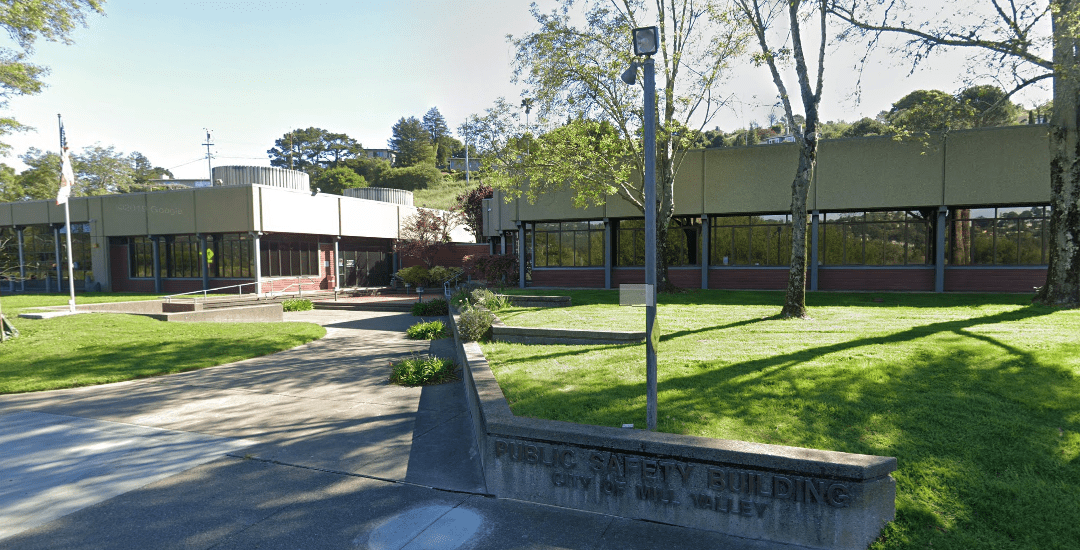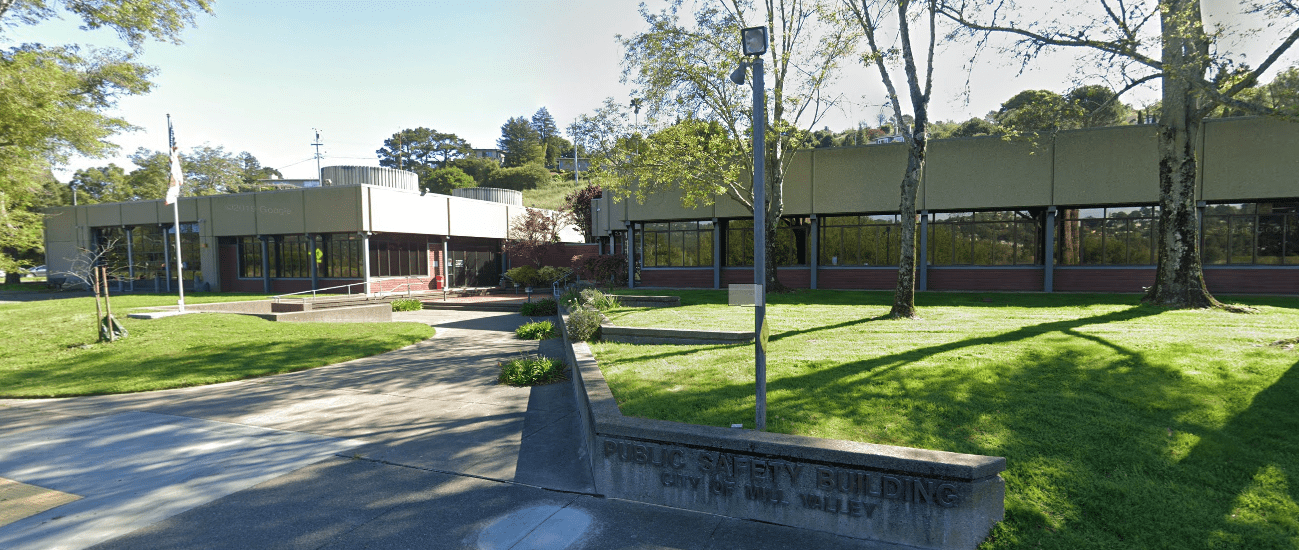At a meeting earlier this month, the City’s Housing Advisory Committee called for a review of all of the 71 city-owned parcels and the various ways they could be used, either as a possible site for an affordable housing development, like the current Public Safety Building on Hamilton Drive, or land that could be sold to generate revenue to support affordable housing or donated as part of a larger affordable housing development.
Senior Planner Danielle Staude and councilmembers framed the discussion: “This effort is about better documentation of city-owned land.”
In addition to the two parcels adjacent to Scott Highlands Park and the aforementioned Public Safety Building, which could potentially be repurposed if city officials decide to expand on a shared services agreement, the sites also included the lot containing the Mill Valley Golf Course clubhouse, as well as the commuter parking lot near Marin Theatre Company on Miller Avenue, among others.
Although there was no proposal to sell parks, or even park-adjacent land, most of the community input on the issue of the identified sites focused on the possible sale of the park itself.
“In my estimation, selling parks should be one of the last ways we should be looking at to raise funds,” said Randall Smith, encouraging the City to establish a transfer tax levied on the transfer of ownership or title to property from one individual or entity to another, as exists in the County of Marin and other jurisdictions. “We have to think more broadly in ways that involve the entire community to build housing rather than target a specific community.”
“The problem is that the situation has been very narrowly defined and it’s a false decision – you can be very much for affordable housing and very much not for selling off parks or public spaces,” said Adam Bain. “I’m surprised we’re here selling off parks.”
Vice Mayor John McCauley sought to bring the conversation back to the issue at hand: “We are not asking to approve any lists or any action plan. All we are asking for is the ability to fill in our knowledge base. There are a lot of questions that need to get answered. We are in a contest to get money to get these (affordable) projects built. Are we going to be one of those cities that will have that commitment? There’s a lot of stuff out there that we don’t know – all we’re trying to do is learn. This is worth doing. And if we’re able to build something, you could fill it with people who work in Mill Valley.”
“I’m ready to take parks off the table,” Councilmember Urban Carmel said after dozens of Scott Highlands residents vehemently expressed their opposition to as-yet-theoretical sales off the park-adjacent lots to generate revenue to support affordable housing efforts. “By the time you get through litigation, there won’t be any money left.”
Carmel added that the lack of affordable housing and the lack of diversity in Mill Valley negatively impact the community’s economic vitality and sustainability.
“The General Plan talks about the value of small town character and diversity in our community,” he said. “We have really not put as much effort as we need to into the diversity part by a long shot, and the two are linked. And you wonder why it costs $8 dollars to get a cup of coffee, because that person traveled two hours coming to Mill Valley and then leaving Mill Valley in order to serve coffee or to clean your garden and to do everything else. That’s why we have the economy we have. Businesses downtown will tell you that they will not survive past the next 10 years unless we get more local workers.”
A number of residents that live outside of the Scott Highlands neighborhood spoke up on behalf of the city’s ongoing affordable housing efforts.
“I hear what you don’t want,” resident Zoe Fry said of the Scott Highlands residents. “I hear ‘not in my neighborhood,’ but what I want to hear from you is what you are proposing what you are willing to put on the line and advocate for and make happen.”
Naima Dean, the chair of the City’s DEI Task Force, urged city officials to “focus on making sure that affordable housing happens here. We’ve been working on this for years and we’ve had no movement in terms of actualizing affordable housing in our community.”
Carmel defended the Scott Highlands residents. “The Scott Highlands community is a fantastic neighborhood – I appreciate what they’ve done,” Carmel said. “They’ve worked constructively with us on issues around the golf course and that path, so when they say they want to work with us to achieve affordable housing, I believe them.”
To that point, Scott Highlands resident Charlie Wilmoth launched a fundraising effort called “House Mill Valley” to support the city’s affordable housing plans. It raised nearly $275,000 within 48 hours of its creation, he said.
Wilmoth told the Marin Independent Journal that the organization’s goal is $5 million by December 2022. “There were passionate people expressing concern that privileged people are not doing enough, and to some degree they’re right. Why should we keep the parks if there are people on the streets?” Wilmoth told the IJ. “We can be on the same side of the table, keep our park and get people into affordable places to live in our city.”
Missed the meeting? You can watch it here.


